September 20-21, 2018 | New York, New York
Common Currents: Examining How We Govern the Ocean Commons
Co-sponsored by Columbia Law School and the Korea Institute of Ocean Science & Technology
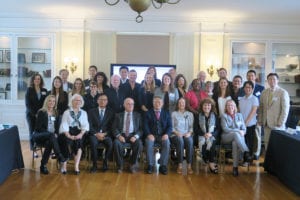 We convened experts in international ocean law, policy, economics, and science to discuss to what extent, and to what effect, we manage the oceans as a global commons. We strove to identify when and how we have managed ocean resources or areas as a commons, and to analyze and evaluate the efficacy of such efforts.
We convened experts in international ocean law, policy, economics, and science to discuss to what extent, and to what effect, we manage the oceans as a global commons. We strove to identify when and how we have managed ocean resources or areas as a commons, and to analyze and evaluate the efficacy of such efforts.
Resources from this conference are available on the event page, and photos can be found here.
August 14-15, 2017 | Malmö, Sweden
Oceans + Climate Change Governance, Integrating Regulatory Initiatives & Addressing Governance Gaps
Co-sponsored by the World Maritime University and the Korea Institute of Ocean Science & Technology
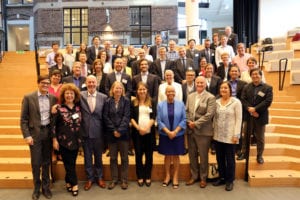
November 17, 2016 | Berkeley CA
California’s Coastal Act: The Next 40 Years
Co-sponsored by the California Environmental Law & Policy Center, UC Davis School of Law; Coastal and Marine Sciences Institute, UC Davis; The Emmett Institute on Climate Change and the Environment, UCLA School of Law, Environmental & Natural Resources Law and Policy Program, Stanford Law School, and Resources Legacy Fund.
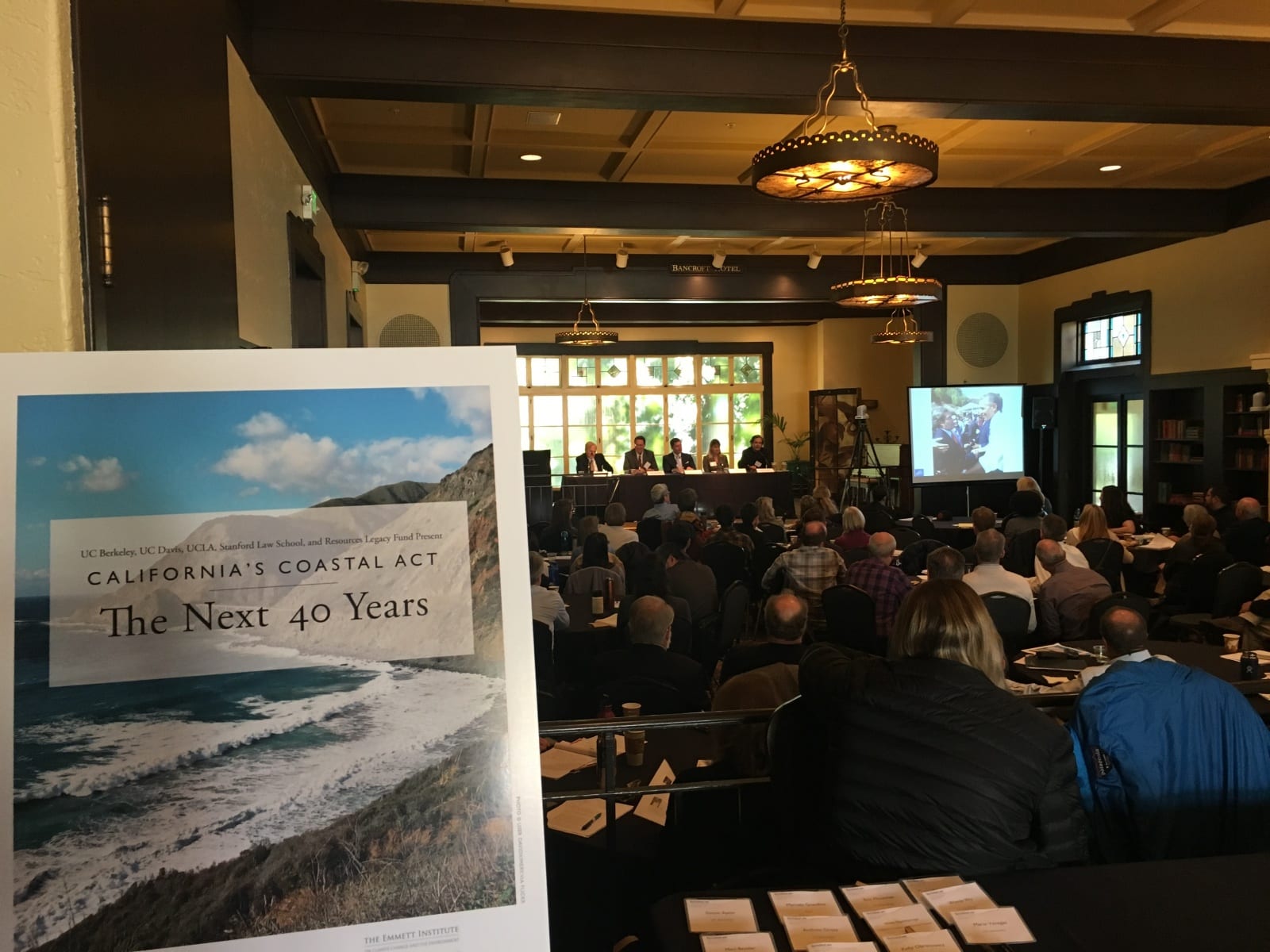 The year 2016 marks the 40th anniversary of the California Coastal Act. Enacted in 1976, the Act has guided coastal development and protection for decades. But today the California coastline arguably faces its greatest challenges yet. UC Berkeley, UC Davis, UCLA, Stanford Law, and Resources Legacy Fund invite you to come explore the history of California coastal management and to inform the agenda for the next 40 years of implementation.
The year 2016 marks the 40th anniversary of the California Coastal Act. Enacted in 1976, the Act has guided coastal development and protection for decades. But today the California coastline arguably faces its greatest challenges yet. UC Berkeley, UC Davis, UCLA, Stanford Law, and Resources Legacy Fund invite you to come explore the history of California coastal management and to inform the agenda for the next 40 years of implementation.August 30-31, 2016 | Singapore
International Conference on Marine Environmental Protection in Asia: Regional Implementation of IMO Conventions
Co-hosted with the Korea Institute of Ocean Science and Technology (KIOST) and the Centre for International Law (CIL) at the National University of Singapore
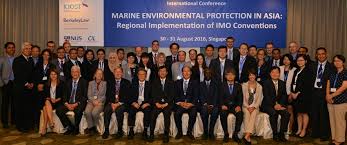
Shipping is integral to the world’s economy, and nearly 40% of seaborne cargo is loaded in Asia. Although the International Maritime Organization (IMO) has adopted a series of conventions to mitigate the impacts of shipping on the marine environment, substantial barriers remain at the regional level.
Our conference focused on the regional implementation of existing IMO conventions to protect the ocean environment in Asia from ships and offshore facilities. The conference participants examined progress in implementing existing obligations and where additional mechanisms may be needed to adequately protect our marine environment.
September 30 – October 1, 2016 | London, United Kingdom
Stress Testing the Law of the Sea: Dispute Resolution, Disasters and New Challenges
Co-hosted with the Transnational Law Institute (TLI) at King’s College London and additionally sponsored by the Miller Institute for Global Challenges and the Law at Berkeley Law.
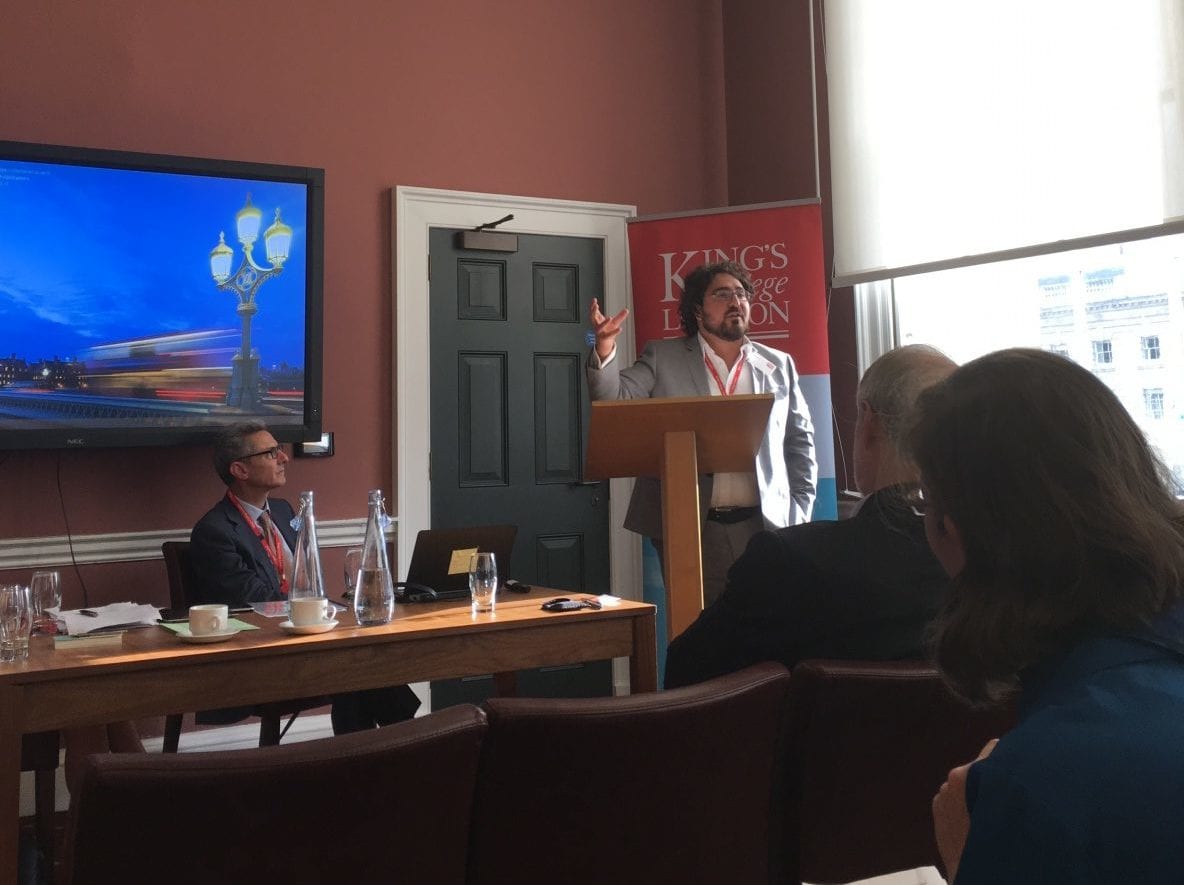 The current international framework for ocean governance, the UN Convention on the Law of the Sea (UNCLOS), is widely acknowledged as a treaty-making success. However, rapid global changes in public and private legal institutions and in marine and weather conditions are stressing the boundaries of the framework. LOSI and our partners convened a two-day discussion amongst expert practitioners and scholars on stress-testing the law of the sea framework and exploring its ability to respond to changing norms in dispute resolution and to emerging issues with high levels of uncertainty, including climate change, increasingly frequent disasters, and rapidly expanding offshore energy.
The current international framework for ocean governance, the UN Convention on the Law of the Sea (UNCLOS), is widely acknowledged as a treaty-making success. However, rapid global changes in public and private legal institutions and in marine and weather conditions are stressing the boundaries of the framework. LOSI and our partners convened a two-day discussion amongst expert practitioners and scholars on stress-testing the law of the sea framework and exploring its ability to respond to changing norms in dispute resolution and to emerging issues with high levels of uncertainty, including climate change, increasingly frequent disasters, and rapidly expanding offshore energy.
October 9-10, 2015 | Berkeley, CA
Law of the Sea Institute 50th Anniversary Conference
Co-sponsored with the Korea Institute of Ocean Science and Technology (KIOST)
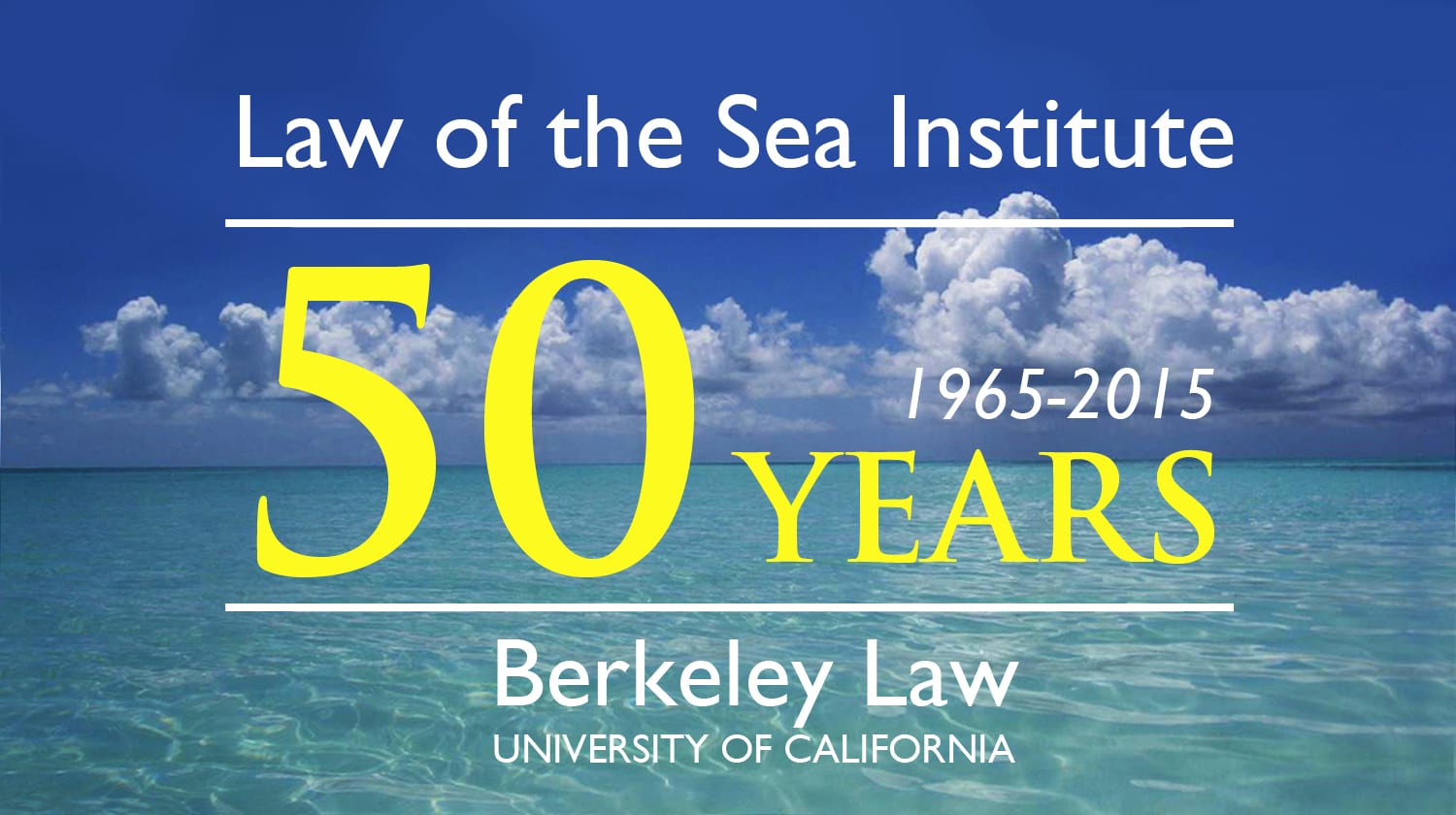 The Law of the Sea Institute (LOSI) was founded in 1965 at the University of Rhode Island. Since that time, LOSI has been housed at the University of Hawai’i and the University of Miami before coming to Berkeley Law in 2002.
The Law of the Sea Institute (LOSI) was founded in 1965 at the University of Rhode Island. Since that time, LOSI has been housed at the University of Hawai’i and the University of Miami before coming to Berkeley Law in 2002.
This conference brought together academics from the United States, Europe, Asia, and Australia to celebrate the fiftieth anniversary of its founding.
Also see the program and photo gallery from this conference.
January 30–31, 2015 | Irvine, CA
Symposium on Arctic Governance
Co-sponsored with UC Irvine School of Law Center for Land, Environment, and Natural Resources; UC Irvine Center in Law, Society, and Culture; UC Irvine Center for Unconventional Security Affairs; Newkirk Center for Science and Society; UC Irvine Oceans Initiative; Fulbright Canada; Consulate General of Canada, Los Angeles; Consulate General of Finland, Los Angeles; Norwegian Consulate General, San Francisco; Consulate General of Sweden, San Francisco
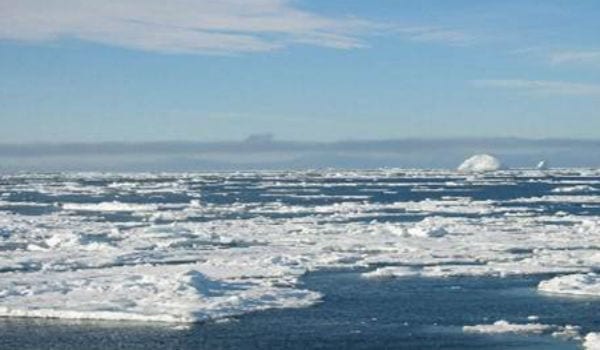 This symposium contributed to the discussion about what is needed for maintaining or improving governance, primarily environmental but not exclusively, in the Arctic region. There has been an immense amount written and said about Arctic governance in the last several years and one major theme revolves around the question of whether new law is needed in the region. This is at least an underlying theme of the symposium within the context of more specifically focused presentations including a focus on how to implement and make effective existing initiatives in law and policy and how to assure that the laws and policies on the ground reflect those adopted.
This symposium contributed to the discussion about what is needed for maintaining or improving governance, primarily environmental but not exclusively, in the Arctic region. There has been an immense amount written and said about Arctic governance in the last several years and one major theme revolves around the question of whether new law is needed in the region. This is at least an underlying theme of the symposium within the context of more specifically focused presentations including a focus on how to implement and make effective existing initiatives in law and policy and how to assure that the laws and policies on the ground reflect those adopted.
The expert papers discussed during the event were published in the UC Irvine Law Review as a symposium issue.
September 19-20, 2014 | Madrid, Spain
Ocean Law and Policy: Twenty Years of Development Under the UNCLOS Regime
Co-sponsored with the Korea Institute of Ocean Science and Technology (KIOST)
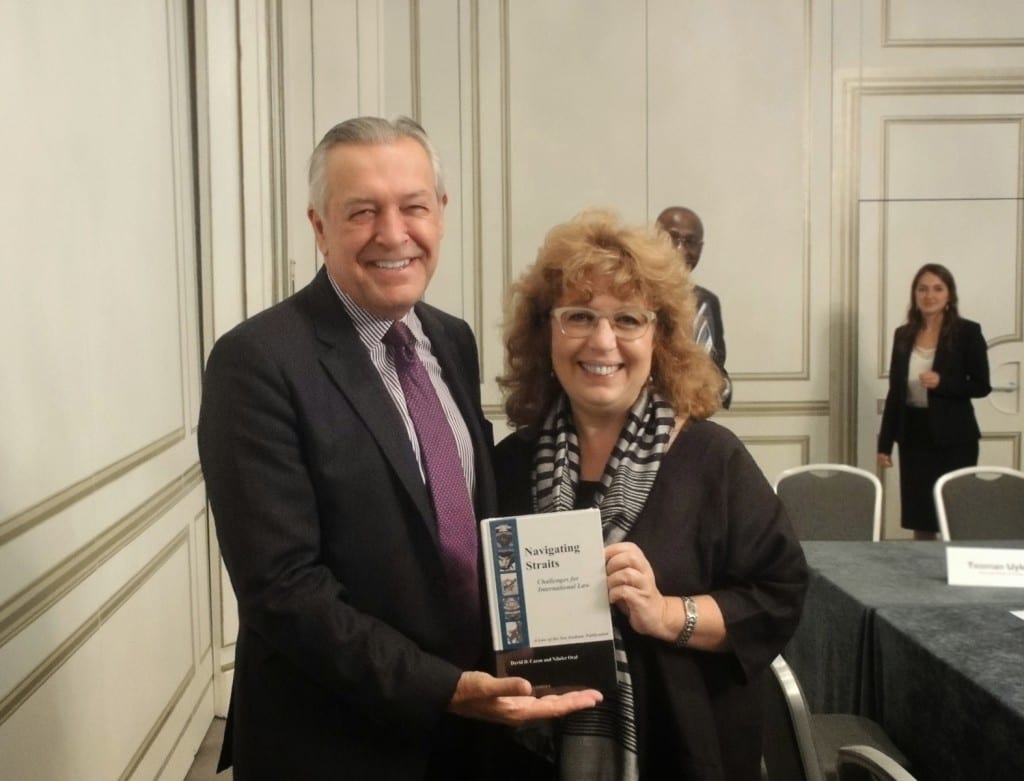 This conference will focused on the two decades of practice since the UN Convention on the Law of the Sea (UNCLOS) entered into force in 1994. Participants will explore the accomplishments and shortfalls witnessed in the developments in ocean governance under the UNCLOS regime.
This conference will focused on the two decades of practice since the UN Convention on the Law of the Sea (UNCLOS) entered into force in 1994. Participants will explore the accomplishments and shortfalls witnessed in the developments in ocean governance under the UNCLOS regime.Also see the program and photo gallery from this conference.
October 11-12, 2013 | Berkeley, CA
Science, Technology, and New Challenges to Ocean Law
Co-sponsored with the Korea Institute of Ocean Science and Technology (KIOST)
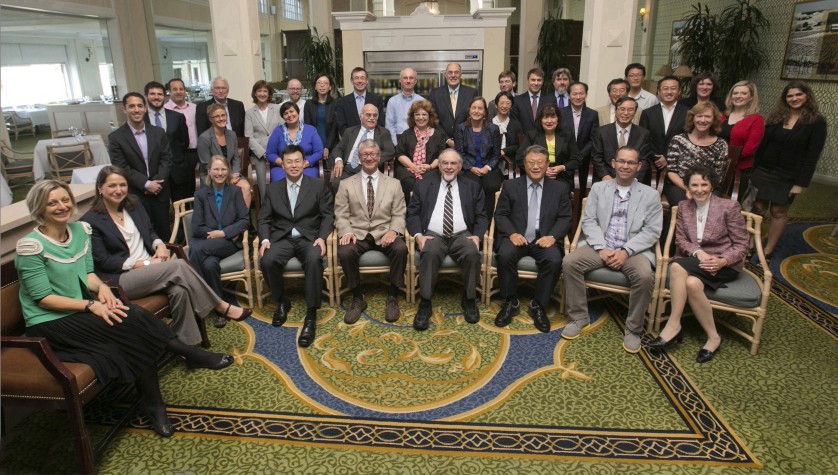
Since the early period of the industrial revolution, successive waves of revolutionary scientific discoveries and technological innovations have intensified the global population’s exploitation of ocean and coastal resources. In this conference several leading authorities in the field address major dimensions of the interface of science, technology and ocean law—both historically and in current-day perspective—and emergent challenges in legal ordering of ocean uses for sustainability and equitability.
Also see the program and photo gallery from this event.
May 21-24, 2012 | Seoul, Korea
Securing the Ocean for the Next Generation
Co-sponsored with the Korea Ocean Research and Development Institute (KORD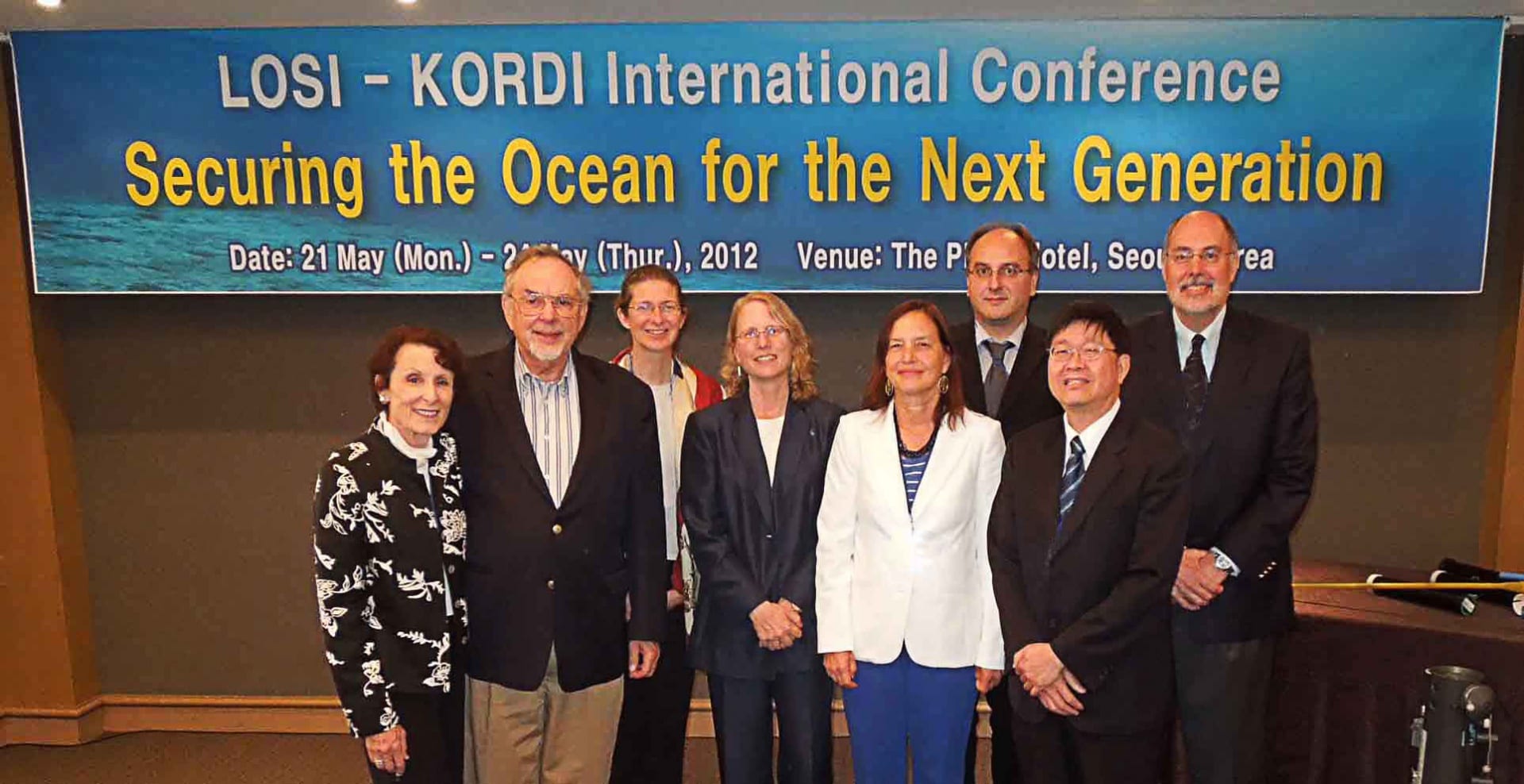 I)
I)
This symposium addressed central issues of policy and law relating to the uses of the global oceans. Many of the most salient issues of ocean uses and their legal ordering that confront legal scholars, governments, jurists and policy specialists in the present day are addressed in the papers of this symposium. Among the most prominent questions that received careful analysis and are the subject of interesting new perspectives are the uses and regime of the deep seas beyond the areas of national jurisdiction; the administration and impact of Exclusive Economic Zone laws; the problems of equitable and efficient sharing of marine resources; the vicissitudes of resolving marine boundary delimitation conflicts; ecosystem management and related issues of equitability; and the content and implications of the International Tribunal for the Law of the Sea in adjudication of the recent Bay of Bengal case.
Also see the program and photo gallery from this event.
April 11-13, 2012 | New London, CT
LEADERSHIP FOR THE ARCTIC
Co-sponsored with the US Coast Guard Academy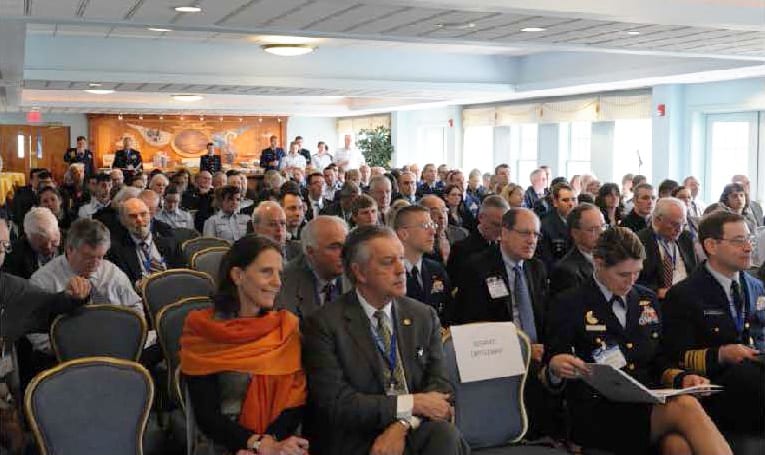
The United States Coast Guard Academy and the Law of the Sea Institute at the University of California’s Berkeley School of Law sponsored a two-day interdisciplinary conference on key issues facing global leaders tasked with shaping and implementing policy for the rapidly emerging human activities in the Arctic.
The sponsors convened this academic conference to provide maritime affairs academics, professionals, and legal scholars with an opportunity to share their professional views with those charged with exercising leadership on Arctic policy formulation and implementation in the coming decade.
Also see the conference proceedings from this event.
November 28-December 2, 2011 | Wollongong, Australia
THE LIMITS OF MARITIME JURISDICTION
Co-sponsored with the University of Wollongong (Australia) and the Korea Ocean Research and Development Institute (KORDI)
At this conference leading oceans scholars and 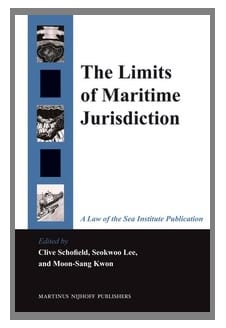 practitioners explored both the definition of maritime limits and boundaries spatially and the limits of jurisdictional rights within claimed maritime zones. Topics addressed included conflicting maritime claims and boundary disputes, access to valuable marine resources, protecting the marine environment, maritime security and combating piracy, concerns over expanding activities and jurisdiction in Polar waters and the impact of climate change on the oceans, including the potential impact of sea level rise on the scope of claims to maritime zones. The conference covered critical analysis on a range of important and frequently increasingly pressing contemporary law of the sea issues.
practitioners explored both the definition of maritime limits and boundaries spatially and the limits of jurisdictional rights within claimed maritime zones. Topics addressed included conflicting maritime claims and boundary disputes, access to valuable marine resources, protecting the marine environment, maritime security and combating piracy, concerns over expanding activities and jurisdiction in Polar waters and the impact of climate change on the oceans, including the potential impact of sea level rise on the scope of claims to maritime zones. The conference covered critical analysis on a range of important and frequently increasingly pressing contemporary law of the sea issues.
See the program from this conference.
September 9-11, 2011 | Istanbul, Turkey
SAFETY, SECURITY, AND ENVIRONMENTAL PROTECTION IN STRAITS USED IN INTERNATIONAL NAVIGATION: IS INTERNATIONAL LAW MEETING THE CHALLENGE?
Co-sponsored with Istanbul Bilgi University (Turkey), the Ocean Policy Research Foundation (Japan), and the Korea Ocean Research and Development Institute (KORDI)
The importance of straits, particularly those used in 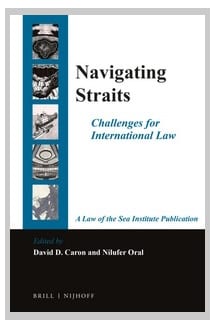 international navigation, has been long recognized in international law. One of the important debates during the Third United Nations Law of the Sea Conference concerned the regime of passage through straits used in international navigation. The result was the creation of a multi-tiered legal framework of passage that included the entirely a new “transit passage” regime. Although over thirty years have passed since the adoption of the 1982 United Nations Convention of the Law of the Sea, the vital role played by straits in the global communications network continues to be surrounded by conflicts between the interests of coastal states and shipping. Challenges still exist to achieving the simultaneous global goals of secure passage of vessels and protection of the marine environment.
international navigation, has been long recognized in international law. One of the important debates during the Third United Nations Law of the Sea Conference concerned the regime of passage through straits used in international navigation. The result was the creation of a multi-tiered legal framework of passage that included the entirely a new “transit passage” regime. Although over thirty years have passed since the adoption of the 1982 United Nations Convention of the Law of the Sea, the vital role played by straits in the global communications network continues to be surrounded by conflicts between the interests of coastal states and shipping. Challenges still exist to achieving the simultaneous global goals of secure passage of vessels and protection of the marine environment.
At this conference international law scholars provided in-depth analysis of the legal challenges in straits concerning security, piracy, safety and environmental protection.
See the program from this conference.
October 5-6, 2010 | Hamburg, Germany
INSTITUTIONS AND REGIONS OF OCEAN GOVERNANCE
Co-sponsored with Inha University (Korea), Academia Sinica (Taiwan), and the Ocean Policy Research Foundation (Japan)
The conference covered issues specific to major 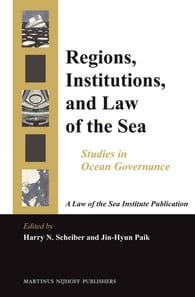 ocean regions, and the nature and functions of institutions that implement the legal order of the oceans. Speakers also gave nuanced analysis of the International Tribunal for the Law of the Sea as a key actor in the institutional and regime structure. Other experts contributed timely analysis of specific ocean uses in the context of implementation of “soft” and “hard” law. Piracy, global warming and ecosystem challenges, geo-engineering, control of pollution in shipping operations, Seabed Authority policy, and performance of the UN Regional Seas Programme were among key issues in both their regional and legal dimensions. Also considered in depth were law, ocean policy, and the operation of international organizations in Northeast Asia, Latin America, the Indian Ocean region, the African coastal areas, and the Arctic.
ocean regions, and the nature and functions of institutions that implement the legal order of the oceans. Speakers also gave nuanced analysis of the International Tribunal for the Law of the Sea as a key actor in the institutional and regime structure. Other experts contributed timely analysis of specific ocean uses in the context of implementation of “soft” and “hard” law. Piracy, global warming and ecosystem challenges, geo-engineering, control of pollution in shipping operations, Seabed Authority policy, and performance of the UN Regional Seas Programme were among key issues in both their regional and legal dimensions. Also considered in depth were law, ocean policy, and the operation of international organizations in Northeast Asia, Latin America, the Indian Ocean region, the African coastal areas, and the Arctic.
See the program from this conference.
August 27-28, 2009 | Honolulu, HI
LAW OF THE SEA AND OCEAN POLICY ISSUES RELATED TO THE PACIFIC OCEAN AND THE PACIFIC RIM
Co-sponsored with Inha University (Korea) and the University of Hawaii
The conference focused on maritime boundary 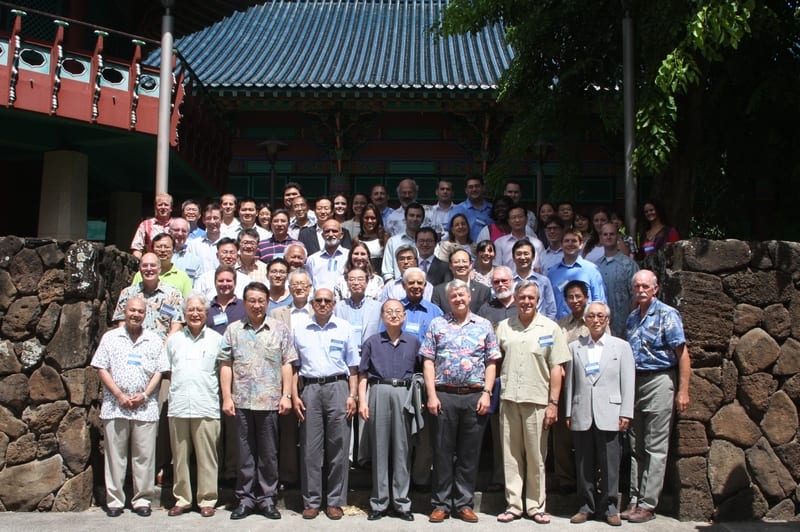 delimitation, claims to the extended continental shelf, procedures and decisions of the International Tribunal for the Law of the Sea, military activities in the exclusive economic zone, piracy, fisheries management, marine protected areas, the rights of indigenous peoples, global climate change and other issues of maritime scientific research.
delimitation, claims to the extended continental shelf, procedures and decisions of the International Tribunal for the Law of the Sea, military activities in the exclusive economic zone, piracy, fisheries management, marine protected areas, the rights of indigenous peoples, global climate change and other issues of maritime scientific research.
See the program from this conference.
May 20-22, 2009 | Seward, AK
CHANGES IN THE ARCTIC ENVIRONMENT
Co-sponsored with the Center for Oceans Law and Policy (COLP), University of Virginia
While the Arctic Ocean has long been covered with ice, recent changes in climate have caused the ice to melt, spurring both conservation challenges to the region’s environment and biodiversity, as well as new opportunities for navigation and natural resource development.
ice, recent changes in climate have caused the ice to melt, spurring both conservation challenges to the region’s environment and biodiversity, as well as new opportunities for navigation and natural resource development.
Topics covered at the conference include political context and scientific background, marine transport, environment and biodiversity, in addition to offshore petroleum and the status of Spitsbergen.
See the program from this conference.
November 4-5, 2008 | Berkeley, CA
OCEAN GOVERNANCE: STRUCTURES, FUNCTIONS, AND INNOVATION
Co-sponsored with Inha University (Korea) 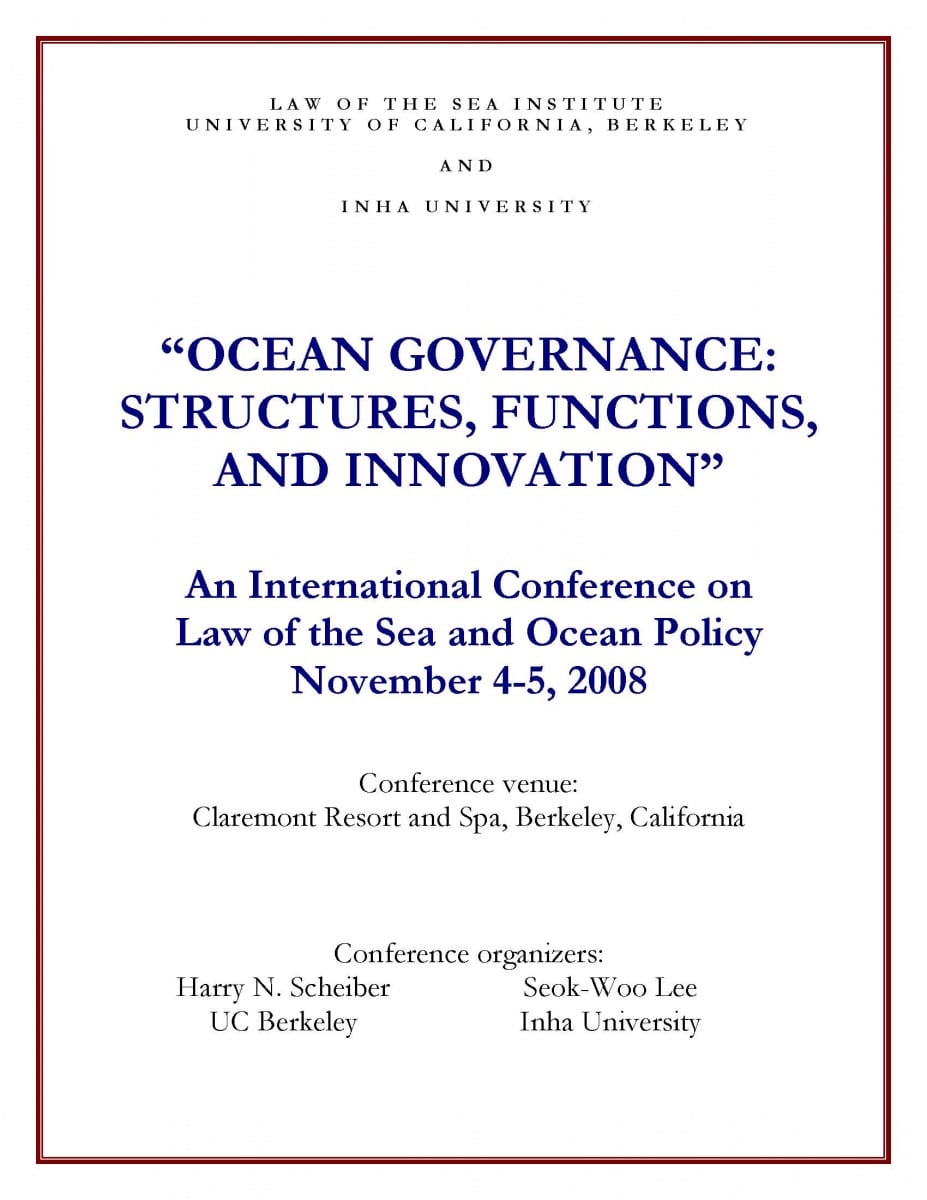
The conference covered topics ranging from climate change, marine environment, living resources of the sea, and the UNCLOS regime, to modern ocean law and human rights law.
See the program from this conference.
April 28-29, 2008, Berkeley, CA
MANAGING FOR A HEALTHY CALIFORNIA CURRENT ECOSYSTEM
Co-sponsored with the Environmental Law Institute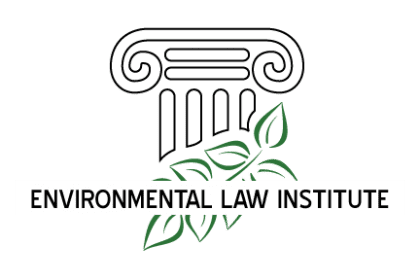
This conference documented key challenges and successful approaches for integrated management approaches to water quality, living resources, and ocean industries management in the California Current. Key concepts and lessons were also incorporated into the Environmental Law Institute’s Ecosystem-Based Management: Obstacles and Opportunities Handbook.
Also see the program from this conference.
October 17-18, 2007 | Seoul, Korea
A HALF CENTURY AFTER THE GENEVA CONVENTIONS
Co-sponsored with Inha University (Korea)
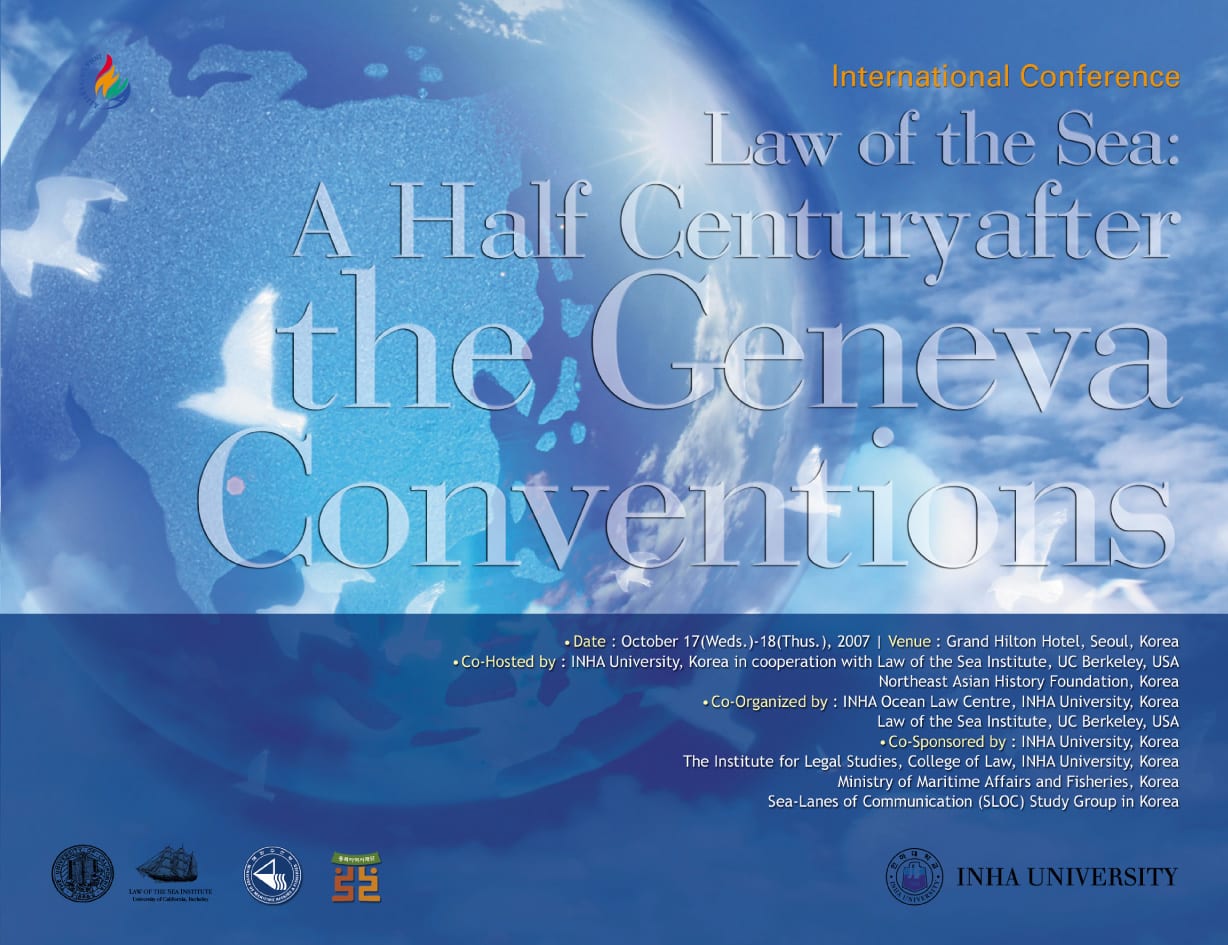 Topics covered at this conference included: the heritage of colonialism and imperialism in relation to territorial disputes and maritime questions; maritime question in North Korea and the Law of the Sea; procedures followed in International Tribunal for the Law of the Sea and other international adjudicative bodies; maritime boundary delimitation and the cooperative management of trans boundary resources; and the history of the maritime disputes resolution during the past five decades.
Topics covered at this conference included: the heritage of colonialism and imperialism in relation to territorial disputes and maritime questions; maritime question in North Korea and the Law of the Sea; procedures followed in International Tribunal for the Law of the Sea and other international adjudicative bodies; maritime boundary delimitation and the cooperative management of trans boundary resources; and the history of the maritime disputes resolution during the past five decades.
Also see the program from this conference.
March 22-24, 2007 | Corpus Christi, TX
LAW OF THE SEA IN THE GULF OF MEXICO AND CARIBBEAN: UNRESOLVED ISSUES AND CHALLENGES
Co-sponsored with the Harte Research Institute for Gulf of Mexico Studies, Texas A&M University
The conference covered emerging energy issues in the G ulf of Mexico, Western gap and trans boundary resources in the ultra-deepwaters of the Gulf of Mexico, maritime boundary problems in the Caribbean, biodiversity, fisheries issues, and ecosystem management among many other topics.
ulf of Mexico, Western gap and trans boundary resources in the ultra-deepwaters of the Gulf of Mexico, maritime boundary problems in the Caribbean, biodiversity, fisheries issues, and ecosystem management among many other topics.
Also see the program and photo gallery from this conference.
October 24-25, 2006 | Seoul, Korea
TOWARDS A FRAMEWORK FOR THE NEW ORDER OF THE SEA
Co-sponsored with Inha University (Korea)
The main issues that were addressed at this confere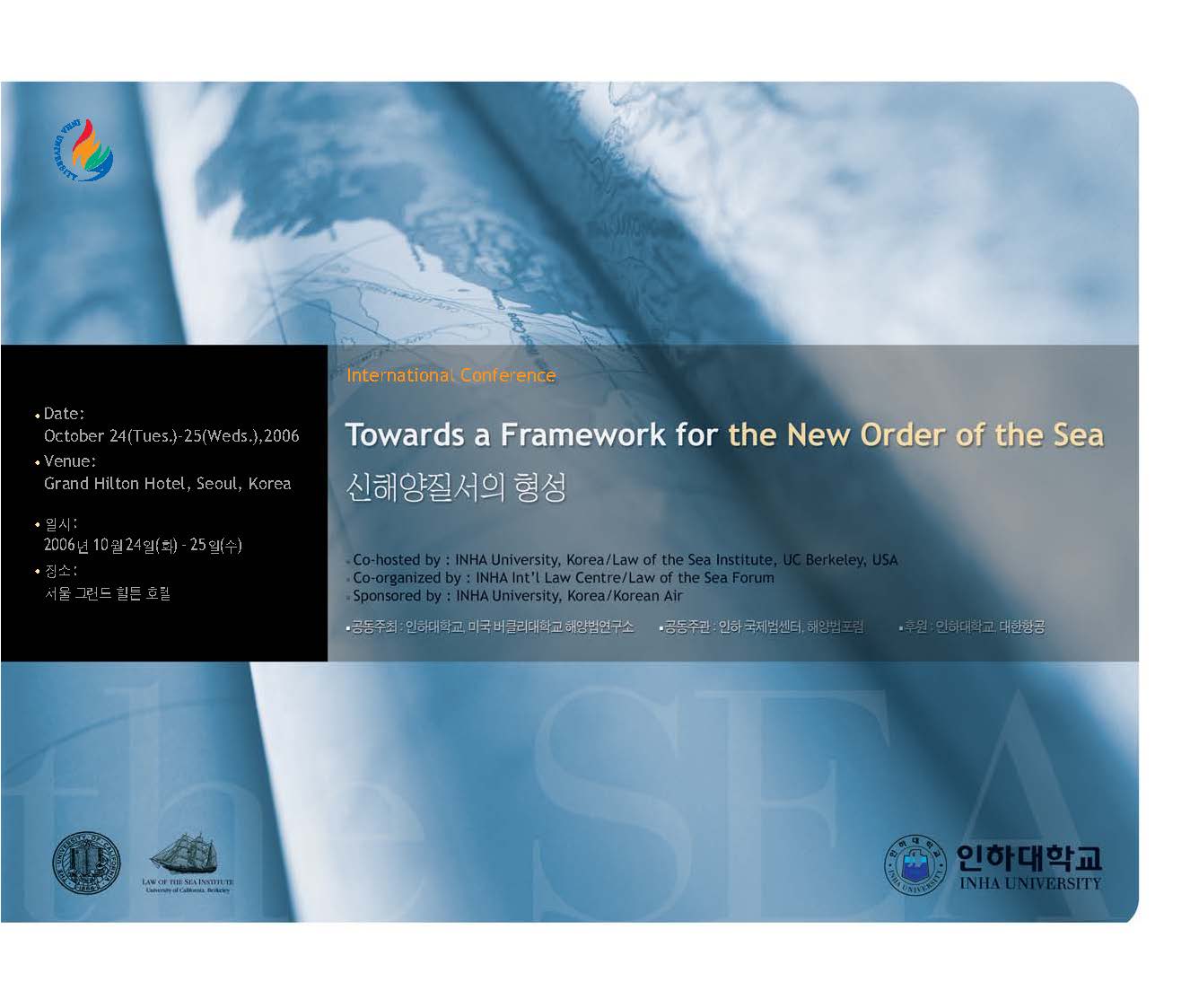 nce were: territorial disputes over islands, maritime boundary delimitation, the settlement of maritime disputes, and regional issues and prospects. These issues are both important and timely, since the resolution of territorial and maritime delimitation disputes is critical to maintaining regional stability in East Asia and other regions around the world.
nce were: territorial disputes over islands, maritime boundary delimitation, the settlement of maritime disputes, and regional issues and prospects. These issues are both important and timely, since the resolution of territorial and maritime delimitation disputes is critical to maintaining regional stability in East Asia and other regions around the world.
See the program from this conference.
February 10-11, 2006 | Berkeley, CA
OCEANS IN THE NUCLEAR AGE
Co-sponsored by Office of the Dean, Berkeley Law; the California Sea Grant College Program; the Institute for International Studies, UC Berkeley; the Sho Sato Program in Japanese and US Law, UC Berkeley; and the UC Marine Council, UC Office of the President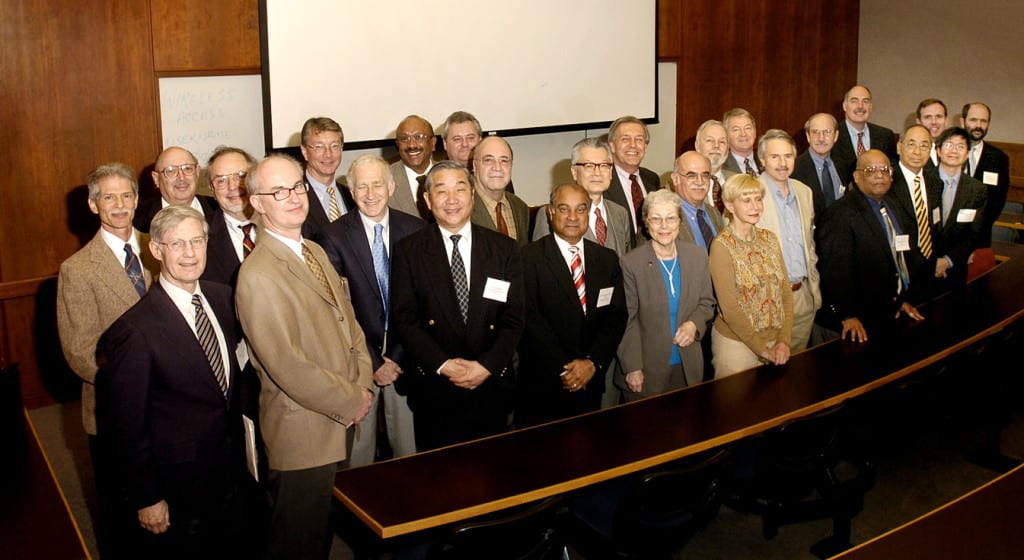
This conference examined the legacies and future implications of the nuclear age for the oceans. Topics such as nuclear waste, ocean testing, and security concerns were discussed.
See the program from this conference.
February 21-22, 2003 | Berkeley, CA
MULTILATERALISM AND INTERNATIONAL OCEAN-RESOURCES LAW
Co-sponsored with School of Marine Affairs, University of Was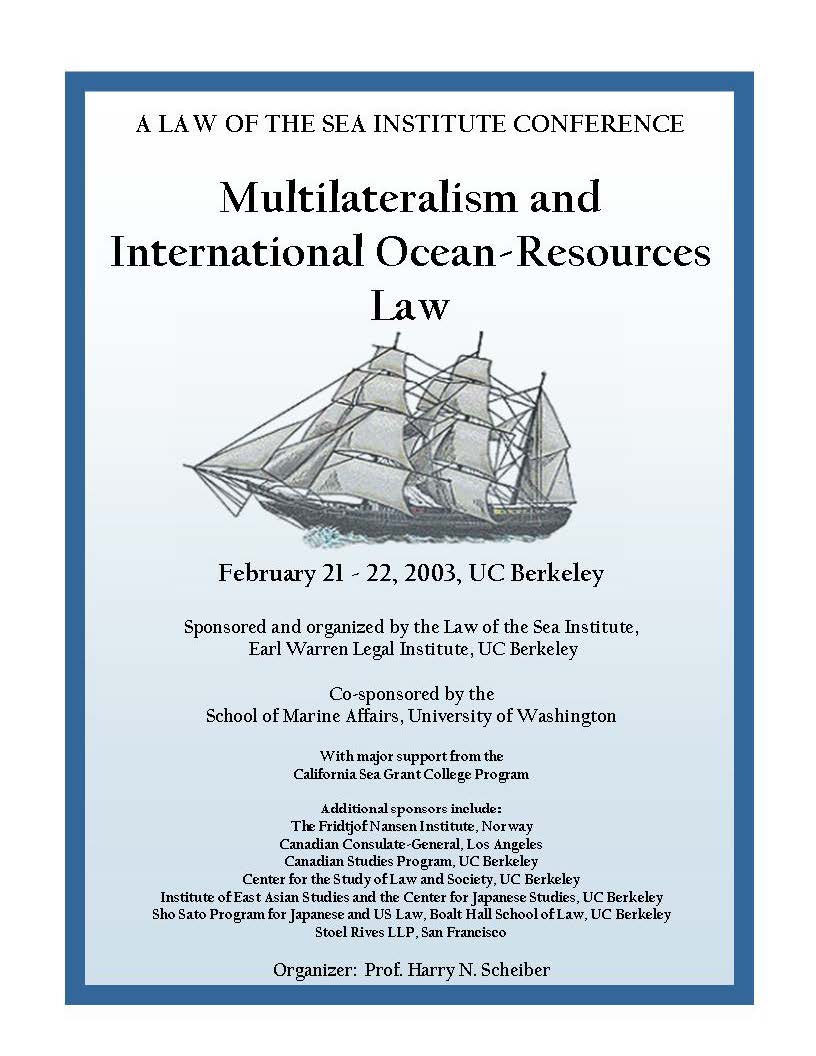 hington
hington
The conference covered topics regarding the North Pacific Fisheries Convention, scientific cooperation in the North Pole, Russian policy, and other issues of regional cooperation.
See the program from this conference.
October 30-31, 1998 | Berkeley, CA
Year of the Ocean
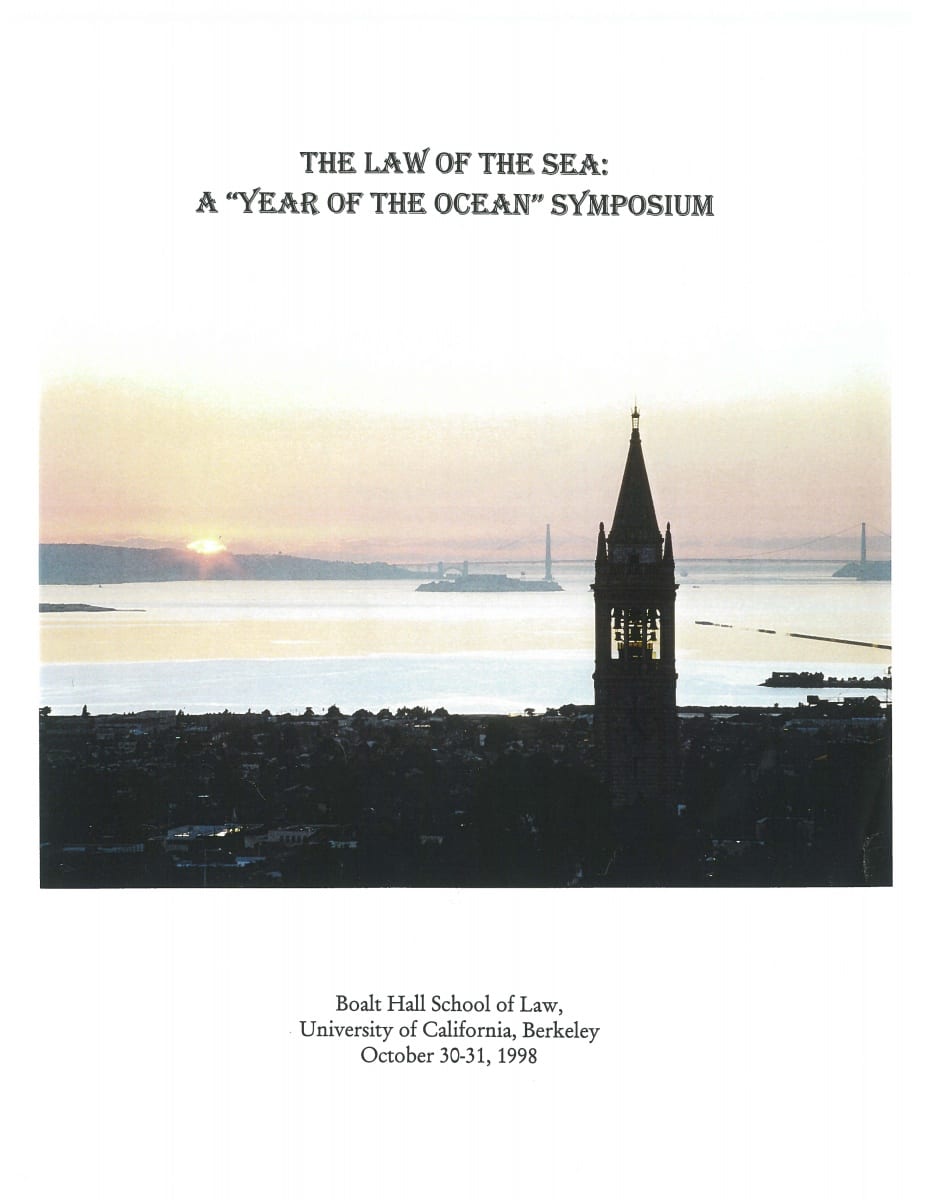 Co-sponsored by the Luso-American Development Foundation (Portugal); the Institute for International and Area Studies, UC Berkeley; the Portuguese Studies Program, UC Berkeley; the California Sea Grant College Program; and the Center for the Study of Law and Society, UC Berkeley
Co-sponsored by the Luso-American Development Foundation (Portugal); the Institute for International and Area Studies, UC Berkeley; the Portuguese Studies Program, UC Berkeley; the California Sea Grant College Program; and the Center for the Study of Law and Society, UC Berkeley
This conference discussed the traditions of ocean law, modern doctrinal developments, marine fisheries, innovation in global shipping regulations, and new legal regimes.
See the program from this conference.